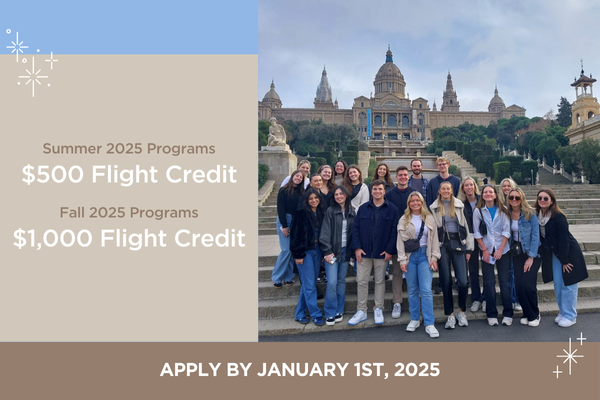Difficult Settings: Preparing for Fieldwork
Summer in Amsterdam Program
Amsterdam, Netherlands
Dates: 7/1/23 - 7/15/23

Difficult Settings: Preparing for Fieldwork
OVERVIEW
CEA CAPA Partner Institution: Vrije Universiteit Amsterdam
Location: Amsterdam, Netherlands
Primary Subject Area: Humanities
Instruction in: English
Transcript Source: Partner Institution
Course Details: Level 300
Recommended Semester Credits: 3
Contact Hours: 45
DESCRIPTION
Most qualitative research methods courses offer theoretical framework, research planning, data collection and analysis in one course within one semester. For Master and PhD students in earlier stages who will prepare and conduct qualitative fieldwork, many opportunities, challenges and potential risks are not discussed well enough. It is hardly mentioned and discussed in training and academic conferences so far. This relates for instance to finding and including respondents in your sample, but also dealing with time and delay, and even violence and other forms of sexual harassment, which are all issues that until now are hardly discussed in preparations. The most careful planning can mean little once the researcher encounters the real world.
In this course, by openly discussing specific issues, students have the liberty to make a choice in relation to each different situation. This course can bring to light the gap between textbook theory and methods in practice. Due to the short period of time for this course, we will focus on two qualitative research methods: in-depth interview and field observation through scenario-based training in each session. Each topic includes one specific scenario under provided contexts. In each scenario there are some awkward and worrisome situations, even sometimes risks, which students will have to cope with. Additionally, it seems that the global pandemic might stay with us for a while. So, this course will take this opportunity to also discuss how to deal with its impact on the data collection period, and therefore, it will also be a topic included in the session.
By the end of this course, students will be able to:
- know how to cope with unexpected problems under difficult conditions.
- be able to reflect on your positionality, including your interactions with participants and boundaries, as a researcher in the field.
- understand how to better protect yourself as a researcher and your participants from potential negative effects.
- learn how to be flexible in your recruitment strategies due to the limited contact with people in the field during the global pandemic
This course will be taught through lectures, workshops, guest lectures, practical sessions and an additional 15 hours of self-study. The final mark of the course will be based on assignments.
The list of themes and topics:
- Safety, vulnerability and risks
- Finance resources and opportunities to support your research
- Pros and cons in relation to research with marginalized populations
- Moral case deliberation to ethical dilemmas
- Building close relationship and engaged scholars
- Dealing with people in the conflict zones and intense emotional settings
- The distrust among participants
- Identifying and creating support networks
- Innovative ways to keep long-term relations with participants (digitally) in for the longitudinal case
Training:
- Case study
- Moral case deliberation
- Self-reflection
- Field observation exercise
- A micro fieldwork exercise
Contact hours listed under a course description may vary due to the combination of lecture-based and independent work required for each course. CEA's recommended credits are based on the contact hours assigned by Vrije Universiteit Amsterdam (VU Amsterdam): 15 contact hours equals 1 U.S. credit
In this course, by openly discussing specific issues, students have the liberty to make a choice in relation to each different situation. This course can bring to light the gap between textbook theory and methods in practice. Due to the short period of time for this course, we will focus on two qualitative research methods: in-depth interview and field observation through scenario-based training in each session. Each topic includes one specific scenario under provided contexts. In each scenario there are some awkward and worrisome situations, even sometimes risks, which students will have to cope with. Additionally, it seems that the global pandemic might stay with us for a while. So, this course will take this opportunity to also discuss how to deal with its impact on the data collection period, and therefore, it will also be a topic included in the session.
By the end of this course, students will be able to:
- know how to cope with unexpected problems under difficult conditions.
- be able to reflect on your positionality, including your interactions with participants and boundaries, as a researcher in the field.
- understand how to better protect yourself as a researcher and your participants from potential negative effects.
- learn how to be flexible in your recruitment strategies due to the limited contact with people in the field during the global pandemic
This course will be taught through lectures, workshops, guest lectures, practical sessions and an additional 15 hours of self-study. The final mark of the course will be based on assignments.
The list of themes and topics:
- Safety, vulnerability and risks
- Finance resources and opportunities to support your research
- Pros and cons in relation to research with marginalized populations
- Moral case deliberation to ethical dilemmas
- Building close relationship and engaged scholars
- Dealing with people in the conflict zones and intense emotional settings
- The distrust among participants
- Identifying and creating support networks
- Innovative ways to keep long-term relations with participants (digitally) in for the longitudinal case
Training:
- Case study
- Moral case deliberation
- Self-reflection
- Field observation exercise
- A micro fieldwork exercise
Contact hours listed under a course description may vary due to the combination of lecture-based and independent work required for each course. CEA's recommended credits are based on the contact hours assigned by Vrije Universiteit Amsterdam (VU Amsterdam): 15 contact hours equals 1 U.S. credit








